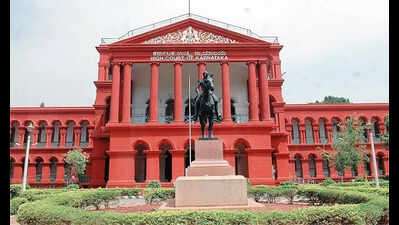- News
- City News
- bengaluru News
- Can’t group a caste differently for reservation in jobs, education: Karnataka High Court
Trending
Can’t group a caste differently for reservation in jobs, education: Karnataka High Court
Bengaluru: A caste cannot be grouped in one category for reservation in education and another for employment quota, the high court has observed in a recent judgment.
In his order, Justice Suraj Govindaraj also directed the state govt to reclassify the ‘Balajiga/Banajiga community' under group B for employment instead of group D.
In the case at hand, V Sumitra from Kollegal taluk, Mysuru district, applied for the post of a primary schoolteacher and sought reservation under the OBC category. She completed her education showing her caste as ‘Balajiga/Banajiga,' which comes under group B.
She was appointed as a teacher on Nov 17, 1993. However, on Feb 19, 1996, a notice was issued alleging that for the purpose of employment, she "belongs to group D and not group B", and that the caste certificate issued was not proper or applicable for such reservation. After several rounds of litigation, the appellate authority in the education department and the Karnataka State Administrative Tribunal rejected her plea.
Justice Suraj Govindaraj noted that the term equality before the law would also include the reservation to be equal in all respects – both under Article 15(4) and Article 16(4).
"The equal protection of laws would also, in my considered opinion, include reservation, since the protection by way of affirmative action is for the grant of reservation of a particular number of seats in education or a particular number of posts in employment. Thus, the protection under Article 14 (Constitutional guarantee of equality) being subject to Article 15(4) and Article 16(4), there cannot be a discrimination of reservation between Article 15(4) and Article 16(4)," the judge added.
"It is declared that the classification of the Balajiga/Banajiga community for the purpose of employment, being different from that for the purpose of education, is discriminatory and illegal… and violative of Article 14 of the Constitution of India. The state, having classified the Balajiga/Banajiga community as group B for education purposes, is required to classify the very same community as group B for employment purposes and not under group D," the judge observed.
"It is declared that the petitioner belonging to the Balajiga/Banajiga community would be entitled to reservation for employment under Group B, and as such, her employment as a primary schoolteacher is directed to be continued by availing of such benefit," Justice Suraj Govindaraj said while quashing the order passed by the divisional commissioners, the appellate authority in June 1999, rejecting Sumitra's plea for considering her to belong to group B.
End of Article
Follow Us On Social Media










